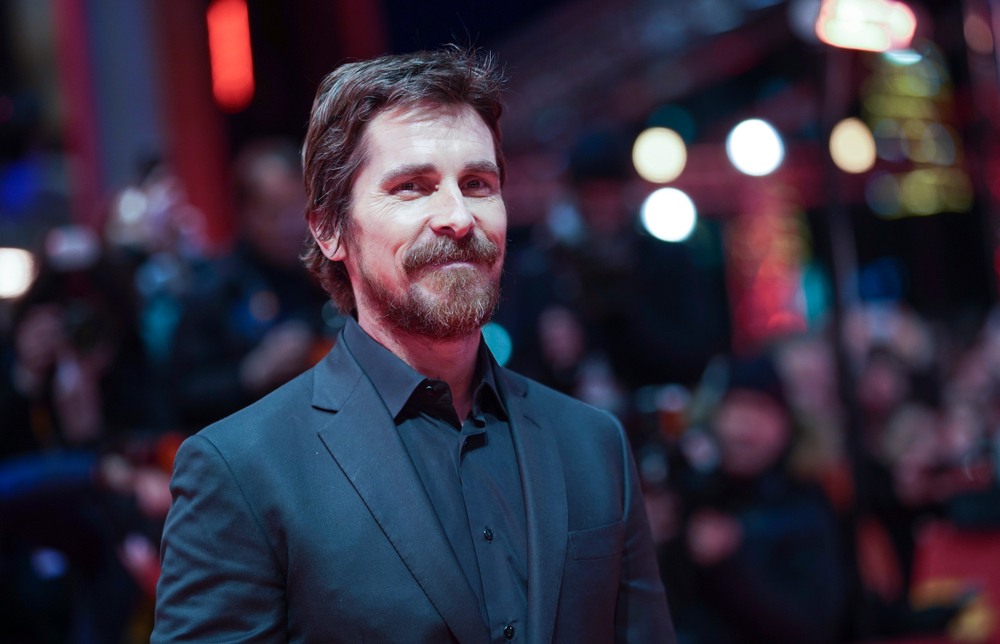Christian Bale Is Building 12 Foster Homes That Aim To Keep Siblings In The Foster Care System Together And Under The Same Roof

Christian Bale, celebrated for his intense roles and remarkable dedication to his craft, is taking on a mission that transcends the world of Hollywood. Far from the spotlight, the Oscar-winning actor has embarked on a deeply personal project aimed at reshaping the lives of children in foster care. With a vision that challenges the status quo, Bale’s efforts focus on creating a safe haven where families torn apart by the system can find a way back together.
This bold initiative, years in the making, is more than philanthropy—it’s a statement of hope and resilience. But what drives an actor at the height of his career to dedicate himself to such an endeavor? And how could this ambitious project potentially transform lives and inspire systemic change?
A Vision Born from Personal Reflection and Urgency
Christian Bale‘s commitment to building a village for foster children stems from a deeply personal revelation. In 2005, following the birth of his daughter, he began to contemplate the fate of children without parental care. His research led to a startling discovery: California has the largest number of foster children in the United States, many of whom are separated from their siblings upon entering the system.
This realization ignited a passion in Bale to address the emotional trauma associated with sibling separation in foster care. He expressed his frustration, stating, “I was stunned and mad to learn that we have more foster kids here than anywhere else in the country.”
Research underscores the significance of sibling bonds in child development, particularly for those in foster care. A report by the Children’s Commissioner for England found that an estimated 37% of children in care with siblings are separated from them, with the likelihood of separation increasing with the number of siblings.
Bale’s vision is to create a supportive environment where siblings can remain together, mitigating the trauma of familial separation. He articulated this mission, saying, “Imagine the absolute pain and the trauma of losing your parents or being torn from your parents, and then losing your brothers and sisters on top of that. That’s no way to treat kids.”
Building the Foster Village

Christian Bale’s vision is materializing in Palmdale, California, where he has broken ground on a pioneering village designed to keep siblings in foster care together. The development, spearheaded by his organization, Together California, is set to feature 12 family homes, two studio apartments for transitional housing, and a 7,000-square-foot community center. The project is estimated to cost $22 million and is expected to be completed by 2025.
The village is strategically located adjacent to McAdam Park, providing residents with access to recreational facilities and a sense of community integration. Bale emphasized the project’s significance, stating, “With our Together California model, [the village] is something absolutely new, totally transformative, and something completely needed.”
The design of the village reflects a commitment to creating a nurturing environment for foster children. Each home is intended to provide a stable and supportive setting, enabling siblings to stay together and maintain familial bonds. The inclusion of studio apartments aims to assist older youths in transitioning to independent living, offering them a bridge as they age out of the foster care system.
The community center will serve as the heart of the village, hosting educational programs, counseling services, and communal activities to support the holistic development of the children. Bale’s dedication to this cause is evident in his hands-on involvement and his collaboration with local officials and donors to bring this vision to fruition.
Overcoming Challenges
Christian Bale’s ambitious project to build a village for foster children faced numerous obstacles, from bureaucratic red tape to logistical complexities. The planning and approval stages were particularly protracted, testing the resilience and determination of all involved. Bale himself acknowledged the unexpected duration of the process, stating, “I had the very unrealistic idea that within one year I’d have created a miniature Sound of Music with kids singing on hills in an endlessly joyful environment.” He soon realized that “it takes an awful long time and really well-motivated people. It’s complicated and tough to help kids.”
Securing a suitable location was another significant hurdle. The team needed a site that was not only available but also conducive to the needs of foster children and their families. After extensive searching, they found an ideal spot in Palmdale, California, adjacent to McAdam Park, providing both accessibility and a sense of community.
Financial challenges also loomed large, with the project’s estimated cost reaching $22 million. Bale’s personal commitment went beyond advocacy; he contributed financially and leveraged his network to garner support. Donors, including industry peers like Leonardo DiCaprio, played a crucial role in funding the initiative.
 Image source: AP Archive on Youtube
Image source: AP Archive on Youtube
Inspiring Community Involvement
Christian Bale’s foster village initiative not only addresses the critical issue of sibling separation in foster care but also serves as a catalyst for community engagement and awareness. By spearheading this project, Bale emphasizes the collective responsibility society holds toward vulnerable children. He passionately stated, “These are our children, and we must help our children.”
The village, located in Palmdale, California, is designed to be more than just a housing solution; it aims to foster a supportive community environment. The inclusion of a 7,000-square-foot community center underscores this objective, providing a space for educational programs, counseling services, and communal activities. This center is envisioned as the “heartbeat” of the village, facilitating connections among residents and the broader community.
Bale’s initiative has garnered support from various stakeholders, including local officials and child welfare advocates. Their collective endorsement highlights the project’s potential to transform the foster care system and inspire similar efforts nationwide. Bale expressed his aspirations, stating, “I hope that this village will be the first of many.”
The project also serves as a call to action for individuals and organizations to contribute to the well-being of foster children. By raising awareness and demonstrating a tangible solution, Bale encourages others to participate in creating supportive environments for these children. His personal involvement and commitment exemplify how dedicated individuals can effect meaningful change within their communities.
Keeping Siblings Together in Foster Care
 Image source: Pexels
Image source: Pexels
Christian Bale’s initiative to construct a village for foster children in Palmdale, California, is poised to make a significant impact on the foster care system, particularly concerning the placement of siblings. By providing 12 homes designed to accommodate sibling groups, the project addresses the prevalent issue of sibling separation in foster care—a factor that has been associated with negative emotional and psychological outcomes for children.
Research underscores the importance of maintaining sibling bonds for children in foster care. A study published in the British Journal of Social Work highlights that separation from siblings can lead to feelings of worry, confusion, and decreased self-esteem. Conversely, placing siblings together is associated with better adjustment and a sense of stability.
Bale’s project not only aims to keep siblings together but also provides transitional housing for older youth aging out of the system. This holistic approach addresses multiple facets of the foster care experience, offering a supportive environment that fosters continuity and emotional security.
By setting a precedent with this village, Bale hopes to inspire similar initiatives nationwide, potentially influencing policy and encouraging systemic changes that prioritize the well-being of foster children. His dedication to this cause reflects a deep understanding of the challenges within the foster care system and a commitment to creating meaningful solutions.
A Vision for a Better Future
Christian Bale’s groundbreaking initiative goes beyond creating a safe haven for foster children—it represents a call to reimagine how society supports its most vulnerable. By tackling the emotional trauma of sibling separation, providing transitional housing for aging-out youths, and fostering a sense of community, Bale is building more than a village; he is building hope and opportunity for generations to come.
The Palmdale project sets a remarkable precedent for addressing systemic issues in foster care through innovative, community-based solutions. Its potential ripple effects—encouraging policy changes, inspiring similar endeavors, and reshaping public perception of foster care—could transform countless lives. As Bale said, “I hope that this village will be the first of many.”
Ultimately, this endeavor reflects the power of compassion and persistence. It’s a testament to how individuals, driven by purpose, can ignite change that reverberates far beyond their immediate sphere. For Bale, this is not just about philanthropy; it’s about creating a tangible legacy of love, support, and unity for children who deserve nothing less.
Featured image from: Shutterstock
Loading...






